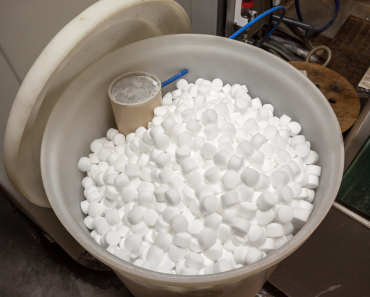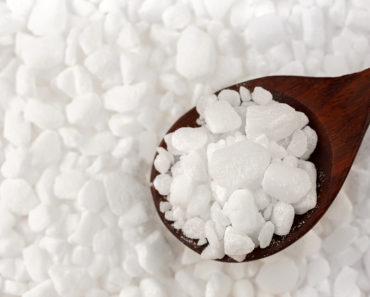There are several benefits of having soft water at home. It can benefit any house since it may help to decrease limescale build-up in pipes and fixtures, as well as make your skin and hair softer and cleaner. When it comes to watering your plants, however, there is a lot of conflicting advice about whether using softened water is okay.
We all know that plants beautify and clean up our environment. They can even lift our spirits, reduce stress, and enhance air quality. But in order for them to provide these benefits, we must care for them properly – including providing adequate light, watering as needed, and using the proper sort of water. “…the right sort of water?” Yes, you’re reading it correctly.
Water contains a wide range of chemicals, many of which can be harmful to plant health and even kill them. When water softeners use salt to soften water, the salts levels remain in the water over time. Many plant-loving people have abandoned salt-using water softeners in favour of better choices because of this.
If you have a salt-water softener that treats all of the water entering your home, including water from your garden hose, you may be wondering whether your plants are in danger. We’ve eliminated the myths surrounding softened water and its potential effects on plants. Let’s get down to business.
What is Softened Water?
Water that is softened contains little or no calcium and magnesium. Calcium and magnesium are the main contributors to hard water, as you may recall from any of our previous water-related articles. The majority of water softeners employ “ion exchange” to eliminate these minerals, resulting in softer water. Flushing the source water through a salt solution that exchanges the hardness minerals for salt ions is called ion swapping. The softened water usually has traces of salt ions present in it, although not enough to be noticeable, and it isn’t suitable for plants unless properly diluted with distilled or filtered reverse osmosis (DOR) or RO feedwater.
Is It Safe for Plants to Drink Softened Water?
It all comes down to whether or not salt is used in the softening process. Because salt-based water softeners change hardness ions for sodium ions (salt) to create softened water, it’s possible that over time, they might have unwanted effects on plants.
- Salt-softened water generally has tiny amounts of salt in it, which may cause the plants’ water balance to be thrown off over time. The accumulated salt content “deceives” the plants into believing that they have taken up more water than they have, causing them to die of thirst.
- Because of the high salt concentration in the soil, it might be difficult for future plants to establish themselves. That’s because salinity acts like a drought on plants, preventing their roots from performing essential functions such as absorbing and transporting water from the soil to other parts of the plant structure where it is required to help the plant thrive.
- Water that has been absorbed by the soil can’t be readily supplied to plants, which increases water stress and root drying.
- The combination of high salt levels and high temperatures can cause seeds to fail to germinate, resulting in stunted plant development. Smaller-than-expected leaves, marginal necrosis of leaves and fruit malformation are all possible effects of a high salt level.
Of course, excessive salt can harm plants in a variety of ways, some more severely than others, depending on the type of plants and other factors.
What Can Salt-Softened Water Do to Plants?
In different ways, salt affects all plants. Some plants are more resistant to salt, while others are unable to function even at low levels of exposure. Although this is the case, here are some typical plant species and how salty water may influence them:
Flowers: Salt in the soil can harm plant cells, causing leaves to turn yellow and flowers to shrivel. Although there isn’t much salt in softened water, the accumulation over time may reduce the health and beauty of flowering plants, dulling their brightness and appeal.
Vegetable gardens: Salt-using water softeners make it more difficult for plants to absorb moisture from the soil, as we previously noted. In addition, when plants take in too much salt, the salt may harm them directly. They can develop symptoms such as delayed bud break, early leaf drop off, nutrient shortages, reduced plant strength and stem growth, and so on once this happens.
Aquatic plants: Some fish and aquatic plants may be harmed by salt-softened water, according to some experts. The softened water, on the other hand, may benefit certain types of fish and plants. The salt can upset the delicate salt equilibrium required for aquariums and ornamental ponds.
House plants: It’s critical to avoid salt-softened water for house plants at all costs. The amount of salt in the water can vary considerably depending on your home’s water hardness level. Salt deposits, on the other hand, may build up much more quickly since the soil for house plants is so minimal. It might be difficult to remediate damage due to salinity because you won’t know how much salt is in the softened water.
Trees: How can tiny salt amounts in softened water harm trees, when they are naturally big? Salts in the soil as well as evergreen needles are frequently damaged by salts. There have been numerous debates about whether the salt content in salt-softened water has an impact on trees over time, but if you’re concerned about long-term consequences, turn off the softener while watering your plants.

